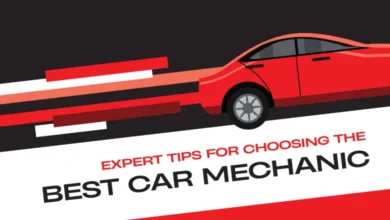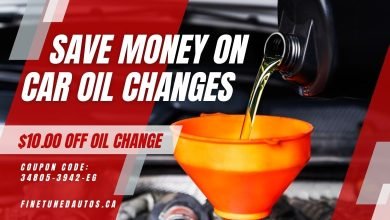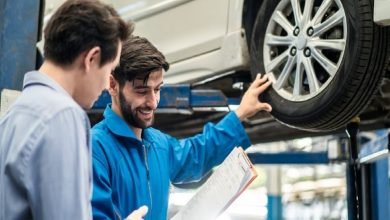Inspecting Junk Cars: What Used Car Buyers Should Look

As a used car buyer, it’s essential to know what to look for when inspecting a potential purchase. This is especially true when looking at junk cars, as they can often have hidden issues that may not be apparent at first glance. In this article, If you are used cars buyers we’ll cover everything you need to know about inspecting junk cars and what to look for to avoid making a bad purchase.
1. Why Inspect Junk Cars?
Junk cars are often sold “as-is,” meaning the seller is not responsible for any issues with the car once it’s been sold. This means that it’s up to the buyer to inspect the car thoroughly to ensure there are no hidden problems. Additionally, junk cars are often sold at a lower price than other used cars, making them an attractive option for those on a tight budget. However, it’s essential to remember that buying a cheap car can often result in expensive repairs down the line if the car has underlying issues.
2. Initial Inspection: Exterior
The first step in inspecting a junk car is to do a thorough exterior check. Look for any signs of damage, such as dents, scratches, or rust. Check for signs of uneven wear on the tires and make sure that all lights and signals are working correctly. If you notice any significant damage or signs of neglect, it’s likely that the car has not been well-maintained, and you should proceed with caution.
3. Checking the Interior
Next, it’s time to check the interior of the car. Look for signs of wear and tear on the upholstery and check that all switches and buttons are working correctly. Be sure to check for any unpleasant smells or signs of water damage, such as mold or mildew. If the car smells musty or has any visible signs of water damage, it’s best to walk away.
4. Under the Hood
The engine is the heart of any car, so it’s essential to check under the hood thoroughly. Look for any signs of leaks or corrosion, and check that all fluid levels are at the proper levels. If you notice any strange noises or smells, it’s best to have a mechanic inspect the car before making a purchase.
5. Checking the Suspension and Tires
The suspension and tires are critical components of any car, so be sure to check them thoroughly. Look for signs of wear and tear on the suspension and make sure that the tires have sufficient tread depth. Uneven wear on the tires can indicate an alignment issue, which could be costly to fix.
6. Test Drive
A test drive is one of the most critical parts of the car-buying process. During the test drive, pay attention to how the car handles and listen for any unusual sounds. Test the brakes and make sure they feel responsive. If you notice any issues during the test drive, it’s best to have a mechanic inspect the car before making a purchase.
7. Document Review
Before making a purchase, be sure to review all documents related to the car, including the title, registration, and maintenance records. If the seller is unable to provide these documents, it’s best to walk away.
8. Rust and Corros
8. Rust and Corrosion
Rust and corrosion can be significant issues in junk cars, so be sure to inspect the car thoroughly for any signs of rust or corrosion. Pay close attention to the undercarriage of the car and look for any signs of rust or corrosion on the frame and suspension components. If you notice significant rust or corrosion, it’s best to walk away as these issues can be costly to repair.
9. Signs of Flood Damage
Flood damage can be a significant issue in junk cars, especially if the car has been in a region prone to flooding. Be sure to check for any signs of water damage, such as musty smells, water stains, or signs of rust and corrosion. If you notice any signs of flood damage, it’s best to walk away as these issues can cause significant problems down the line.
10. Salvage Title
A salvage title is a title issued to a car that has been damaged to the point that the insurance company has deemed it a total loss. Salvage cars can often be purchased for a lower price, but it’s important to be aware of the risks involved. Salvage cars may have underlying issues that are not apparent at first glance, and they can be difficult to insure and sell down the line.
11. Odometer Rollback
Odometer rollback is a common issue in junk cars, and it can be challenging to detect. It rollback occurs when the mileage on the car’s odometer has been tampered with to make it appear as if the car has lower mileage than it actually does. This can be a significant issue, as it can make it difficult to determine the car’s true condition and value.
12. Previous Accidents
It’s important to check for any signs of previous accidents when inspecting a junk car. Look for signs of repairs or mismatched paint, and be sure to check for any structural damage. If the car has been in a significant accident, it may have underlying issues that are not immediately apparent.
13. After Purchase Inspection
Even after a thorough inspection, it’s possible that you may have missed something. It’s always a good idea to have the car inspected by a mechanic after purchase to ensure that there are no underlying issues. This can help you catch any potential problems early on and prevent expensive repairs down the line.
Conclusion
Inspecting a junk car can be a daunting task, but it’s essential to ensure that you’re getting a good deal and not buying a car with hidden issues. Be sure to do a thorough exterior and interior check, check under the hood, inspect the suspension and tires, and take the car for a test drive. Review all documents related to the car and be sure to check for signs of rust and corrosion, flood damage, salvage titles, odometer rollback, and previous accidents. And remember, even after a thorough inspection, it’s always a good idea to have the car inspected by a mechanic before making a purchase.
FAQs
Q1. What should I do if I find issues during the inspection?
If you find significant issues during the inspection, it’s best to walk away from the car or negotiate a lower price to account for the repairs needed.
Q2. Can I inspect the car myself, or do I need to hire a mechanic?
While it’s possible to inspect the car yourself, it’s always a good idea to have a mechanic inspect the car before making a purchase to ensure that there are no hidden issues.
Q3. What should I do if the seller doesn’t have the necessary documents?
If the seller is unable to provide the necessary documents, it’s best to walk away from the car as this may indicate that the car has underlying issues.




